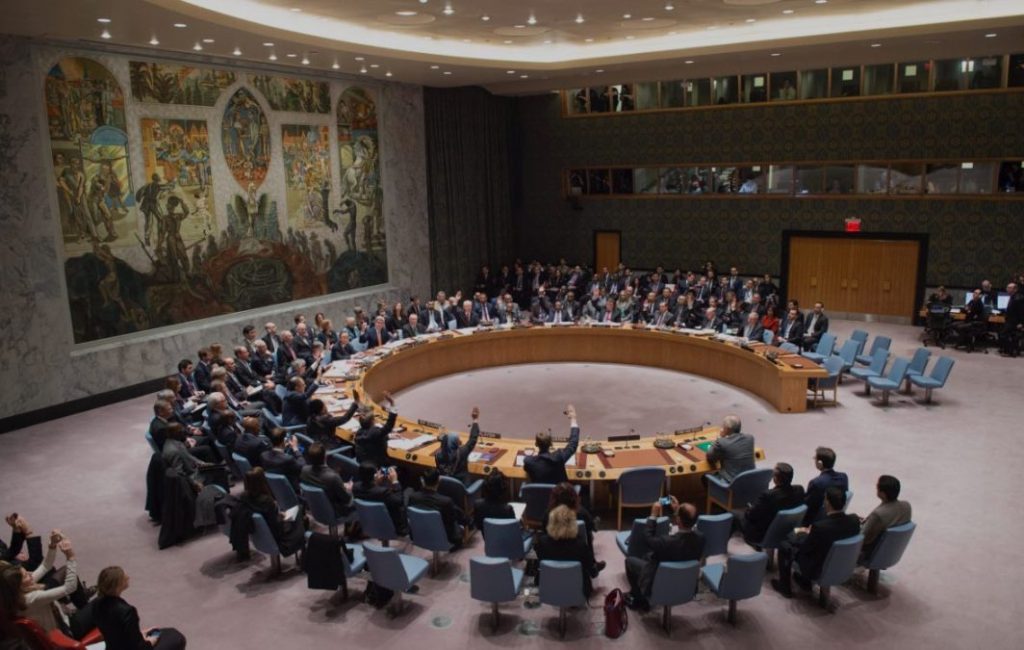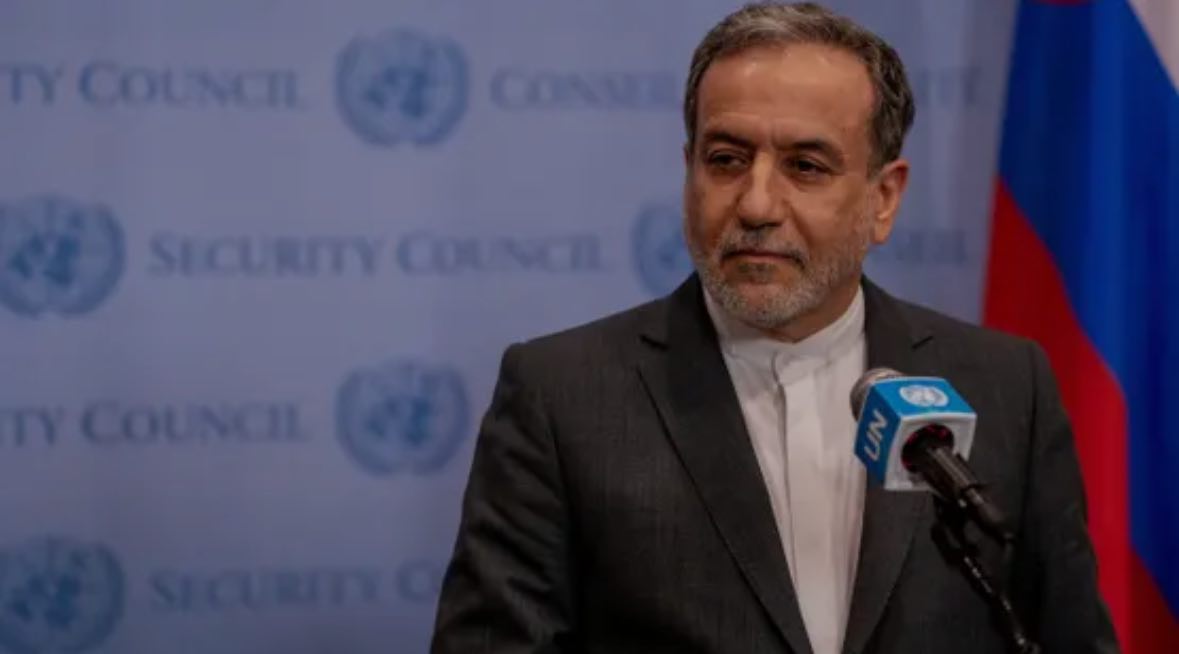Legal deadlock in the Security Council: Iran’s case reaches an unprecedented point
Legal deadlock in the Security Council: Iran’s case reaches an unprecedented point
According to the Iran Gate news agency, six weeks after the claim of the return of Security Council resolutions against Iran and three weeks after the termination of resolution 2231, the political and legal atmosphere surrounding the Islamic Republic’s nuclear case remains in a state of suspension and ambiguity.
While three permanent members of the Security Council speak of the return of sanctions, two other members consider it lacking legal legitimacy, creating an unprecedented rift in the council’s history. This rift not only disrupts the decision-making process in the highest international security body but also raises new questions about the implementation or non-implementation of the six previous resolutions against Iran.
An analysis of the legal and political situation related to the return of Security Council resolutions against Iran

Approximately six weeks after the claim of the return of Security Council resolutions against the Islamic Republic of Iran and three weeks after the termination of resolution number 2231, the involved parties remain steadfast in their previous positions.
During this time, neither a development leading to a solution has occurred, nor is there any conceivable possibility for an opening in this unprecedented situation, given the legal dimensions of the issue and the current positions of the countries.
The current situation is considered rare, if not unprecedented, in the history of the United Nations Security Council. Typically, if one of the council’s permanent members opposes a draft resolution, that draft is either not put to a vote at all or, if proposed, is vetoed and rendered null.
However, the current situation, where three permanent members of the council believe in the existence and necessity of the resolutions, and two other permanent members have a different view, is historically unique.
In such circumstances, where the mentioned situation has caused a kind of unprecedented legal uncertainty, the main issue is what developments are actually occurring. The Islamic Republic of Iran, along with China and Russia, in their first letter dated August 28 — coinciding with the letter from France, the UK, and Germany regarding the activation of the snapback mechanism — explained their reasons for opposing the actions of the three European countries.
In this letter, as in subsequent individual and joint correspondences by the three countries, the European claim of following the procedure outlined in paragraphs 37 and 36 of the JCPOA was rejected, and based on the legal principle of clean hands, the European action, which itself violated the JCPOA, was deemed inadmissible.
An important point in this letter was that, in addition to requesting the Security Council to consider the claim of Iran’s violation of JCPOA commitments as null and void, it was stated that any action contrary to resolution 2231 cannot impose an international legal obligation on UN members.
Another letter from Iran, Russia, and China dated October 18 — coinciding with the expiration day of resolution 2231 — addressed to the President of the Security Council is also of special importance. Clause 8 of this resolution includes four key sections: 1) Expiration of all provisions of the resolution on October 18 2) Non-reimplementation of any previous resolutions against Iran that were annulled under paragraph 7a 3) Termination of the review of Iran’s nuclear program in the Security Council 4) Removal of the non-proliferation issue related to Iran from the council’s agenda
However, in the recent letter, only two components, namely the end of resolution 2231 and the termination of the review of Iran’s nuclear program, were mentioned, and it is unclear why the other two components — the prohibition of re-implementing annulled resolutions and the removal of the Iran issue from the council’s agenda — were not mentioned. Given Russia’s firm and strong stance, the question arises whether the omission of these items was due to China’s opinion and request.
Following the completion of the so-called snapback process on September 27, the UN spokesperson issued a statement announcing the return of Security Council resolutions against Iran, the update of the list of sanctioned Iranian individuals and entities, and the resumption of the 1737 sanctions committee’s activities.
Following this action, in addition to the official protest by the Islamic Republic of Iran, the Russian Foreign Minister also sent a letter to the UN Secretary-General strongly protesting the claim of the activation of the six resolutions and considered this action aligned with Western countries’ positions and contrary to Article 100 of the UN Charter, which prohibits the Secretary-General from executing member states’ orders.
In the continuation of this process, the main question is what approach other countries, beyond those aligned with the West who have announced they will implement the six resolutions, will take.
Considering Russia’s explicit and firm stance against the return of the six resolutions — including statements by Russia’s ambassador to the UN and the country’s Foreign Ministry spokesperson regarding non-recognition of the resolutions — it can be predicted that in the context of intensified competition among major powers, Russia will create serious obstacles in the path of appointing the chairman of the 1737 sanctions committee, continuing its activities, and also forming the expert panel related to resolution 1929.
Another important question is whether China, Russia, and other countries will practically violate the six resolutions, for instance, through the sale of weapons to Iran. The recent claim by CNN regarding the sale of 2,000 tons of sodium perchlorate to Iran, known as one of the prerequisites for missile fuel production, cannot be legally considered a violation of the resolutions.
Because resolution 1929 only refers to the prohibition of activities related to ballistic missiles capable of carrying nuclear weapons and the transfer of related technology to Iran.
Sodium perchlorate is considered a dual-use material that is neither mentioned in the resolutions nor directly included in the list of prohibited items, but is only a prerequisite for the production of ammonium perchlorate used in the manufacture of solid missile fuel. Therefore, even if the reported news is accurate, this matter cannot be considered evidence of a violation of the resolutions by China.
Another development related to China is the new content of the statement from the Financial Action Task Force (FATF) General Assembly meeting on October 25.
In this statement, which is considered an updated version of the June 13 statement, it is emphasized that in light of the Security Council resolutions regarding Iran’s non-compliance with non-proliferation commitments, FATF reminds all financial sectors to be vigilant about the risks arising from proliferation financing from Iran.
China and eight member countries of the Non-Aligned Movement are among the members of the FATF General Assembly, and decisions in this assembly are made by consensus. Russia’s membership in FATF has been suspended due to the Ukraine issue. Additionally, this body has mechanisms for monitoring countries’ adherence to its recommendations.
Another noteworthy point is observed in the joint statement of the European Union Council and the Gulf Cooperation Council. In paragraph 49 of this statement, it is noted that the joint council is aware of the return of sanctions and United Nations restrictions regarding Iran’s nuclear program that had previously been lifted.

